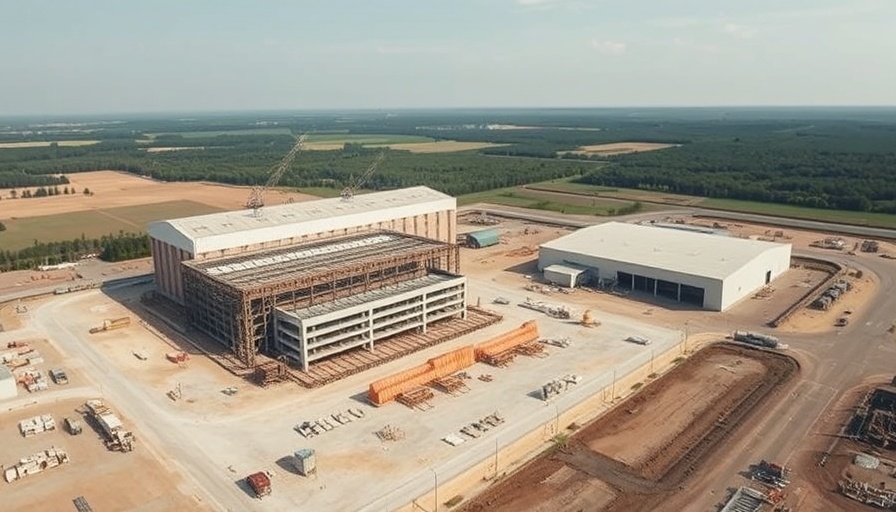
Future of EV Manufacturing Hangs in the Balance
The recent cancellation of Freyr Battery's planned $2.6 billion factory in Georgia has sent ripples through the electric vehicle (EV) manufacturing landscape, underscoring a turbulent environment driven by rising costs and fierce competition. Announced in November 2022, the facility was set to produce energy storage systems aimed at enhancing Georgia's clean energy capabilities. However, this ambitious project has been shelved due to climbing interest rates, falling lithium-ion battery prices, and shifting corporate focus.
Climate Factors and Economic Pressures
As experts suggest, the fallout from this cancellation reflects broader global challenges impacting renewable energy projects. Inflation rates have surged, making investments in new factories riskier, while the market is overcrowded with competitive pressures, especially from cheaper imports from China. Jason Peace of Freyr has noted that these factors played a crucial role in the company's strategy shift toward a solar panel manufacturing facility in Texas, which promises quicker revenue generation. This pivot reveals the ongoing struggle for sustainability amongst startups in the rapidly changing EV industry.
Local Economic Impact
The implications of this project’s cancellation extend beyond Freyr. The original plan promised to create about 723 jobs in Coweta County, reenergizing the local economy. State and local leaders had formed an economic development agreement with the company that included over $358 million in financial incentives. Fortunately, due to Georgia's structured incentive process, taxpayers are somewhat protected; the process ensures that grants and incentives can be clawed back if companies fail to deliver on their promises.
What's Next for Georgia's EV Landscape?
Looking forward, as Freyr seeks a new buyer for the 368-acre site, it remains to be seen how other firms will respond to the changing market dynamics and regulatory environment. Rivian, another high-profile EV manufacturer, continues to follow through with its assembly plant plans despite significant delays. This situation encapsulates the high-stakes environment in EV production and renewable energy manufacturing—an industry where the future is frequently uncertain yet still full of potential.
As the landscape unfolds, the focus remains on how Georgia can maintain its position within the EV revolution while mitigating factors that may threaten future developments. Staying informed and proactive will be crucial for local leaders, investors, and businesses looking to harness the sustainable energy wave on the horizon.
 Add Row
Add Row  Add
Add 




Write A Comment